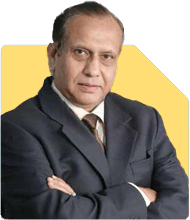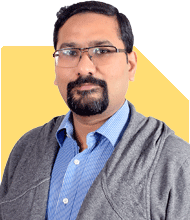Virender Kapoor | Answer |Ask -Follow
Self-improvement Expert - Answered on Jan 30, 2023

Sir, I am working in PSU as a electronics engineee. and wanted to work in MNC and want to travel abroad . Is it right time to switch to private job? as lot of layoff news making me nervous to leave government job. Due to monotocity in job I became dull and less energetic.
You may like to see similar questions and answers below
Aashish Sood | Answer |Ask -Follow
CAT, Management Expert - Answered on Nov 02, 2023
Patrick Dsouza |1063 Answers |Ask -Follow
CAT, XAT, CMAT, CET Expert - Answered on Mar 18, 2024
Dr Dipankar Dutta |1442 Answers |Ask -Follow
Tech Careers and Skill Development Expert - Answered on May 26, 2025
Dr Dipankar Dutta |1442 Answers |Ask -Follow
Tech Careers and Skill Development Expert - Answered on May 26, 2025
Dr Dipankar Dutta |1442 Answers |Ask -Follow
Tech Careers and Skill Development Expert - Answered on May 26, 2025
Dr Dipankar Dutta |1442 Answers |Ask -Follow
Tech Careers and Skill Development Expert - Answered on May 26, 2025
Dr Dipankar Dutta |1442 Answers |Ask -Follow
Tech Careers and Skill Development Expert - Answered on May 26, 2025
Dr Dipankar Dutta |1442 Answers |Ask -Follow
Tech Careers and Skill Development Expert - Answered on May 26, 2025
Dr Dipankar Dutta |1442 Answers |Ask -Follow
Tech Careers and Skill Development Expert - Answered on May 26, 2025
Dr Dipankar Dutta |1442 Answers |Ask -Follow
Tech Careers and Skill Development Expert - Answered on May 25, 2025
Dr Dipankar Dutta |1442 Answers |Ask -Follow
Tech Careers and Skill Development Expert - Answered on May 25, 2025
Dr Nagarajan J S K |445 Answers |Ask -Follow
NEET, Medical, Pharmacy Careers - Answered on May 25, 2025




















